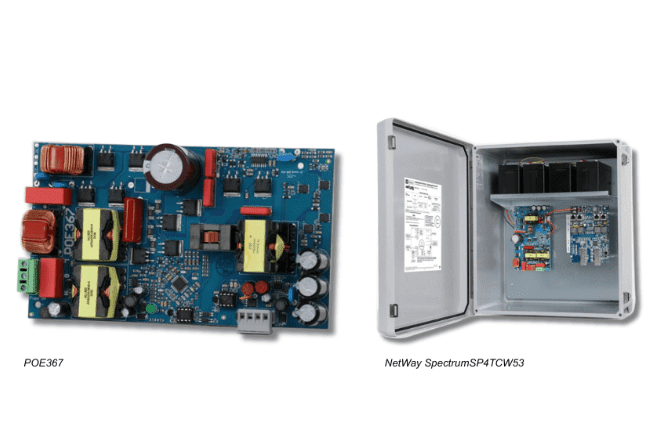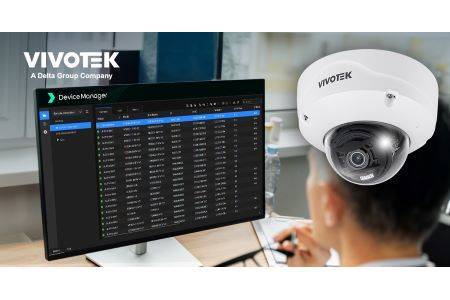Limelight: Securing the gaming industry and protecting against Distributed Denial of Service (DDoS) attacks
Distributed Denial of Service (DDoS) attacks represent a major threat to reputation and revenue within the entertainment industry. Limelight Networks Senior Director Product Management, Steve Miller Jones (below, right), explains how cloud-based Content Delivery Networks (CDNs) can help fight even the biggest DDoS attacks.

In gaming, we have observed a trend towards gamers producing and watching each other’s games for a couple of years now. This means that the success of games now hinges on their ability to deliver high-quality video content to millions of customers and potential customers. Broadcasters of e-sports face the same challenge. Like gamers, fans want the highest quality viewing experience. Gaming platforms and e-sports broadcasters are both attractive to cybercriminals looking to launch an attack, because their high profiles and large subscriber bases provide them with a significant target for end user data harvesting, service disruption and criminality.
This year we are seeing an evolution in DDoS attacks, raising the alarm for game developers to reconsider their cybersecurity. We have seen more DDoS attacks occur from compromised systems, which are used to create a botnet to flood a targeted system with an overwhelming number of requests and traffic. They aim to cause service outage on a mass scale. By flooding the platform with unsustainable levels of requests and traffic, the applications attacked are starved or resources and performance quality is significantly degraded. If a user can’t access content, or its quality is poor, customer experience is damaged, translating to a bruised reputation for the brand. In the ultra-competitive worlds of gaming and e-sports, subscribers can all too easily take their business to competitors, meaning game developers cannot afford to compromise on audience experiences. You could have the best on-board security solution that money can buy, but if your connections to the internet get flooded with attack traffic, it will not make a difference — no legitimate requests will be able to reach your content. When your game is released, you need a solution that’s ready to deliver millions of copies — fast. It not only needs to scale at launch, it also needs to flex for those unexpected spikes in demand. The solution you choose should also support your video and content-sharing strategy, protecting you from malicious website attacks, especially during critical launch periods.
Get proactive to avoid downtime
Both the gaming industry and large scale international e-sports tournaments operate on a global level, meaning that attacks can wreak havoc and harm a developer’s reputation, as well as advertising or subscription revenues, across the world. However, cloud-based Content Delivery Networks (CDNs) provide sufficient features, services and capacity to fight the biggest of attacks without having to invest in on-premise hardware. This means users can continue to play or watch the game even while an attack is underway. When evaluating CDNs as part of a DDoS strategy, as well as considering how they can help with your storage needs, you should also look for a CDN that offers proactive detection to avoid downtime, and which can detect known and zero-day attack vectors. Ensuring your solution includes behaviour-based detection techniques that can recognise application attacks, which are subtle and cannot be spotted by simply monitoring traffic volumes, is an important consideration in your purchasing criteria. After all, a flash crowd after a viral advertisement may look very much like a DDoS attack unless you view them through a behaviour-based lens. Being able to distinguish between attempted attacks, and general traffic is essential when catering to big audiences.
Know your enemy
Additionally, in the event of an attack, it is imperative to be informed of exactly what kind of attack it is. While an attack can bring your gaming platforms and e-sports streams down for hours, the performance delays caused by always-on scrubbing solutions also lead to slower site performance that can translate directly into lower audience engagement. Therefore, a CDN’s ability to provide details of how large an attack is, and how it is being mitigated, is a high priority.
Finally, any solution to DDoS detection and remediation must come with consideration for performance impacts and the end user’s experience. A high-performing CDN should satisfy the always-on detection requirement without any peacetime performance penalty. Cloud security solutions provide defensive protection for your website and your content regardless of what you are delivering — from safeguarding a video playback portal, to a game download origin.
With the gaming industry booming, we will undoubtedly see more sophisticated DDoS campaigns, potentially during key events such as new game launches. Expect the frequency of cyberattacks to increase during 2017, part of the reason being the ease by which attacks against web applications can be launched. In order to maintain brand reputation and continue driving revenue, game developers must harness the power of high performing networks that safeguard their content.
[su_button url=”https://www.securitynewsdesk.com/newspaper/” target=”blank” style=”flat” background=”#df2027″ color=”#ffffff” size=”10″ radius=”20″ icon=”icon: arrow-circle-right”]Click here for more from Security News Desk Newspaper [/su_button]





























